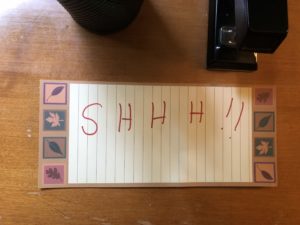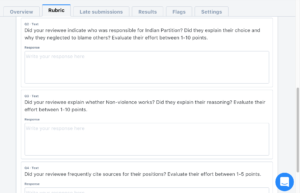Socratic Seminars are a big part of my class. The students circle-up and then dissect complex topics. These are highly engaging, collaborative, and provocative sessions. We do them a lot. However, even if you thoroughly enjoy something, like the taste of a Reese Cup (the relevance of which I’ll explain in the episode), if you do it too much…the magic is lost. I’m always looking for ways to improve engagement in class discussion. My kids are totally down with Philosophical Chairs, which I consider a highly successful experiment. A few months ago I ventured down a new a path, the Silent Socratic Seminar. Even as I read the last sentence, it seems absurd. How can you have a class discussion if no one says anything?
This episode will demonstrate how you can do just that. I utilized two platforms:
- Peergrade, which I highlight in Episode 74
- The Stanford History Education Group, which I highlight in Episode 40
The kids prepared for the seminar via the Stanford History Education Group and then collaborated, not verbally, but through writing via Peergrade. Peergrade is the 21st Century version of trade and grade, but this version is far superior to the days back in grade school when you evaluated your neighbor’s spelling quiz when prompted by your teacher. But unlike trade and grade, Peergrade is totally anonymous. My experience has been that anonymity equates to authenticity.
For our Silent Socratic Seminar, we explored the partition of India. Here were the directives I gave my kids. Students submitted their work to Peergrade, which then distributed it to peers randomly and anonymously. Kids then evaluated their peers based on the rubric I set up. Here’s a screenshot of mine for the Silent Socratic Seminar on Indian Partition.
What I observed in the silent circle was fascinating. It was incredibly silent. For fifteen minutes, students evaluated in a trance-like state. Then, once kids got their feedback, they leaned forward once again absorbed in what they were reading. Student engagement was evident. I highly recommend this tactic.
Episode Template
The Problem:
Even the best class discussion tactics grow stale.
The Solution:
Try a Silent Socratic Seminar.
What you can do Tomorrow:
- Secure great sources from the Stanford Education Group
- Investigate Peergrade
- Create a writing prompt for students to submit to Peergrade
- Create student rubrics they’ll apply to peer essays they receive via Peergrade
- Prompt kids for feedback at the conclusion
A Silent Socratic Seminar is a fresh approach to class discussions.
Listen to “104-Please try a SILENT Socratic Seminar…Compliments of Peergrade and the Stanford History Education Group” on Spreaker.

